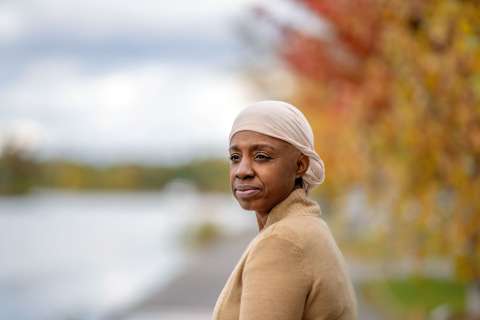Sometimes successfully treating a patient’s gynecologic cancer is only half of the battle. But a survivorship program at UCLA Health aims to help women continue that journey by healing mentally and emotionally as well as physically. “I always felt that we had a responsibility to provide our patients with the resources and support to return to wellness,” says Rachel Frankenthal, a physician assistant who launched the program in the UCLA Division of Gynecologic Oncology.
“It’s not enough just to treat the cancer,” she says. “We want to support our patients through the transition between what can be a very intense and often traumatic experience of treatment and the re-entrance into life that follows. These women go through so much, from the process of being diagnosed with cancer to months of treatment, which can include surgery, chemotherapy and radiation. These lifesaving therapies can unfortunately leave women with long-lasting side effects.” Frankenthal says.
“We want to support our patients through the transition between what can be a very intense and often traumatic experience of treatment and the re-entrance into life that follows.”

In addition to counseling, the survivorship program, which launched as a pilot last year, offers weekly virtual yoga and meditation classes. During the pilot period, “we surveyed the survivors to see how the program affected them, and we found that every participant experienced an improvement in their treatmentrelated side effects, including fatigue, brain fog, mood and neuropathy,” Frankenthal says. “It also helped those with menopausal symptoms, such as hot flashes and difficulty sleeping.”
Feelings of isolationare common among patients with cancer, and this was particularly true during the pandemic, Frankenthal notes. “That is another reason it felt important to connect our survivors and create community for them,” she says. “We wanted them to know that they were not alone. Our program provides the space for women to reconnect with themselves as survivors, to find community with other survivors and to engage in therapeutic modalities to improve treatment-related side effects.”
During and after cancer treatment, focusing on improving all aspects of a patient’s health is essential, adds Ritu Salani, MD, director of gynecologic oncology. “Being a partner with the patient and the caregivers on this journey is one of the most meaningful experiences for me as a physician. We will never stop looking for ways to keep improving this aspect of cancer care.”
In addition to the gynecologic-cancer survivorship program, there are other programs available to survivors of cancer, including acupuncture at UCLA’s Center for East/West Medicine, mental-health support through the Simms/Mann-UCLA Center for Integrative Oncology, diet and nutrition counseling with the UCLA Center for Human Nutrition and a menopausal-symptom-management clinic with Frankenthal. “Nobody wants to be diagnosed with cancer,” she says. “However, with the right resources, I think coming out on the other side can be very empowering. We want our patients to go on to really live the lives they fought for. That is our goal for survivorship.”


